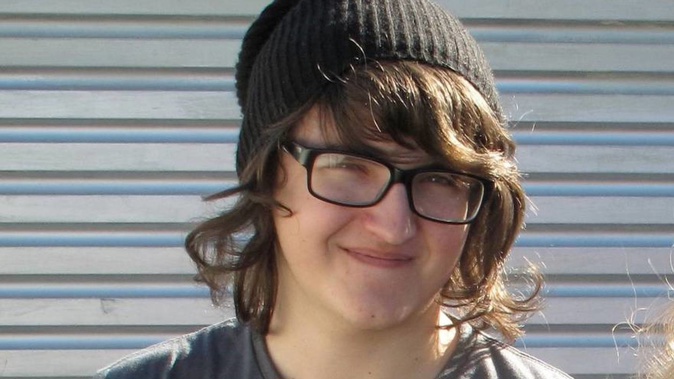
 WARNING: This story discusses suicide and depression and may be upsetting.
WARNING: This story discusses suicide and depression and may be upsetting.
A teenager who took his own life in a mental health facility might have had a better chance had he been given individual psychological therapy, a coroner has found.
Henry Samuel Martin, 17, was found unresponsive in a bedroom at community mental health facility Headspace, in Wellington on April 14, 2015. He died in hospital several days later.
An inquest report by Coroner Janet Anderson, just released, said Henry received increasing doses of the antidepressant fluoxetine for his severe depression in the months before he died.
These increasing doses of medication seemed to be the “primary response” to Henry’s deteriorating mental state, she said.
He did not receive any formal individual psychological therapy.
“The reasons for this are not clear,” the coroner said.
Coroner Anderson said it was unclear whether individual therapy had been considered for Henry but declined, or deemed to be clinically inappropriate, unavailable because of a lack of staff or resources, or whether it was not provided for some other reason.
She said there had been convincing evidence from Dr Craig Immelman, a specialist child and adolescent psychiatrist engaged by the coroner, that psychological therapy would have been of assistance to Henry.
“In particular I refer to the evidence of Dr Immelman at which he referred to evidence of psychological interventions being ‘glaringly absent’, and where he agreed that psychological therapy is the one thing … that would have given Henry the best chance of a different outcome.”
- Seeing 2022 through the lens of gratitude
- Lack of labour mounts pressure on mental health and addiction services
- Nick Mills chats to Victim Support NZ about the mental health impacts of burglaries
The coroner found that Henry’s death was self-inflicted in circumstances that amounted to suicide.
She recommended that the health agency Te Whatu Ora – Capital, Coast and Hutt Valley undertake a comprehensive review of medication prescribing practices within the Wellington child and adolescent mental health team (CAMHS).
She recommended a review of the management of suicide risk identification and management processes within CAMHS.
She also wanted clarity around the processes for referring clients for psychological therapy, and to ensure that clinicians were aware of them.
The inquest was told that on the night of April 14, only one staff member was on-site at Headspace, to cover two different buildings, as a second staff member had been held up by bad weather.
The staff member conducted the 30-minute safety checks for Henry but had been unable to sit and talk to him.
The coroner recommended that Emerge Aotearoa ensure there was a process for notifying clinical teams of any unplanned change in staffing levels.
In concluding, Coroner Anderson extended her deepest condolences to Henry’s family and friends for their loss.
She said it was clear Henry’s mother Phillipa Kitchin went to great lengths to support her son and to try to facilitate his access to necessary care and treatment.
“Phillipa was a staunch advocate for Henry during his life and she has continued this role in the years since he passed away.
“Both of Henry’s parents, his wider family and his friends did their best to support Henry during the difficulties that he experienced throughout much of his life.
“There is no doubt that Henry was much loved and cared for, and that the impact of his death has been profound for all those affected.”
-Ric Stevens, Open Justice
Where to get help:
- Lifeline:0800 543 354 (available 24/7)
- Suicide Crisis Helpline:0508 828 865 (0508 TAUTOKO) (available 24/7)
- Youthline:0800 376 633 or text 234 (available 24/7)
- Kidsline:0800 543 754 (available 24/7)
- Whatsup:0800 942 8787 (noon to 11pm)
- Depression helpline:0800 111 757 or text 4202 (available 24/7)
- Anxiety helpline:0800 269 4389 (0800 ANXIETY) (available 24/7)
- Rainbow Youth:(09) 376 4155
If it is an emergency and you feel like you or someone else is at risk, call 111.
Take your Radio, Podcasts and Music with you









